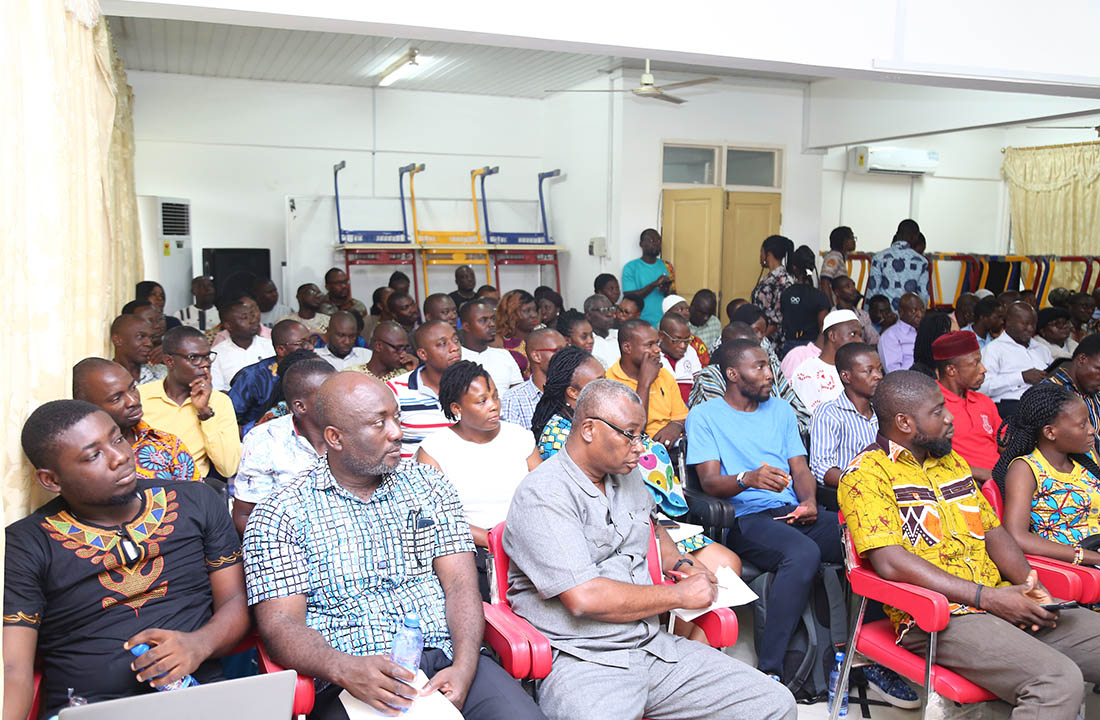The School for Development Studies (SDS) has held a Public Lecture under the theme, “Ghana Beyond Aid (GBA) and Sustainable National Development.”
The lecture was aimed at fostering a better understanding of the Ghana Beyond Aid agenda. The Dean, School for Development Studies, Dr. Emmanuel Y. Tenkorang indicated that the issues of development have become one of the major concerns of the current state of the country. He said, “SDS holds development as its’ core mandate, trains and churns out people to face the challenging developmental issues of the citizens, therefore, there is the need to meet and deliberate on some issues that are hindering the country’s growth.”
Ghana Beyond Aid Charter
The main speaker, a United Kingdom-based Finance Managing Consultant, and Author, Mr. Marricke Kofi Gane, said, the GBA charter spells out what the agenda is. “It is a National Transformation Agenda of the Ghana we want and the behavioural changes needed to get us there; it is about Transforming and Growing out of dependence on aid – not the rejection of aid; it is not a development plan with a list of projects to be implemented by government,” he said. According to him the GBA agenda seeks to change the environment and the way we do development and institutionalise GBA by engaging citizens and stakeholders to have a buy-in.
Reforms
Mentioning some of the main reforms needed to make the GBA happen, he highlighted on macroeconomic stability; higher public resource management; greater efficiency in using public resources and transparent public investments; improved public infrastructure and easier access to land. Mr. Gane also said a robust financial sector for domestic savings; a more supportive private sector environment; small and medium scale enterprises support; export promotion and import substitution; building technological capabilities; creating strong social partnerships between government, business and labour; a more strategic mobilisation and use of aid were the other trends of the agenda. Mr. Kofi Gane hinted that the document also has a total list of 76 specific government projects and programmes that would be carried out to bring GBA to fruition. Mr. Gane explained that “A true development is all about systematically building a country’s economic, political, technological and social structures into a unified adaptive system that continually delivers total well-being to its citizens and which continues to adapt to the changing needs of its citizens.”
Focused, Disciplined Agenda
The Speaker added that “One needs to understand that it is the unified nature of adaptive system that guarantees and ensures that citizens benefit politically, economically, socially and technologically. He noted that locally, efforts should be focused on delivering concrete outcomes through technical and operational superiority in the public sector. He indicated, “What Ghana needs right now is a focused, disciplined agenda to become what we were always destined to be – a great and strong nation. We need to deliver accelerated development by re-building the capacity of the state and its citizens – a human capital-driven entry point.”
Important Ingredient for the Nation’s Survival
The Provost, College of Humanities and Legal Studies, Prof. Francis Eric Amuquandoh, noted that development was the most important ingredient in the survival of every nation, therefore, the people should do their best to accelerate its’ cause. Prof. Amuquandoh, who chaired the programme, added that “We have plenty resources but we still wallow in poverty, therefore, it will be important to discuss development, so as to bridge the gap between academia and field of practice.”
Prof. Amuquandoh charged the participants to use the information gathered to help improve the lots of the people and to address their developmental dynamisms. He also called for the need to devise efficient public sector reforms and manage resources of the country. Prof. Amuquandoh said, “We must be selfless because development and improvement are in our hands if only we can manage the little resources we have as a country. We should allow ourselves to be trained and enlightened to create new ideas for inventions and innovations, and be ambassadors to the message we have heard.”
Present at the lecture were the Faculty Officer, School for Development Studies Mrs. Priscilla B. Bansah, lecturers and students from the faculty.

